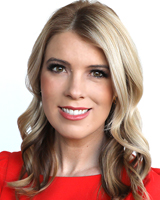'I'm not afraid anymore': Overcoming fear and anxiety as the world reopens


SAN FRANCISCO -- As California prepares to reopen, the change is creating a new set of fear and anxiety for many as people go back to the office and pre-COVID activities.
Going back to work for Liz Duffield was not easy. "The more anxious I began to feel, the more resistant I began to feel about going back to work."
But Duffield, who is a special education teacher for Marin County's Office of Education, knew she needed to return to in-person learning. "I teach children on the autism spectrum, ages 3 to 6, and it's a passion. I absolutely love my job. I didn't want COVID to be the reason I couldn't do something that I loved."
Duffield says she was scared. She didn't want to get sick and infect her students and elderly parents, who she cares for. "They're in their 80s and I didn't want them to die."
Duffield has been back in her classroom for the entire school year, but she experienced what so many Americans are now facing as the world begins to reopen.
"You're safe at home, you can control what's happening in your house and when you have to re-enter you no longer have that bubble around you anymore and you've learned a new way of doing things and now you have to go back and re-learn your job, re-learn how to interact with people and you're doing it now with a mask on, and you're hand sanitizing. Everything's different," she said.
Derrell Porter and Winnie Siu of San Francisco are both expecting to return to their offices soon.
"We've now developed a certain set of habits for over a year, and you've just got to get used to it again," explained Porter.
"Constant adjustment, I think that's the whole pandemic, things are constantly changing and you're learning new information," said Siu.
They both have a similar concern about returning to the office with colleagues.
"I know my vaccination status, but I don't know anyone else's," said Siu, who is fully vaccinated.
RELATED: 'Cave Syndrome:' As COVID-19 cases improve, some prefer continued social isolation
"I'm worried about the people who are not vaccinated and trying to make sure everyone continues to follow protocols and ultimately get everyone vaccinated and get to herd immunity," said Porter.
Dr. Sarah Metz is the director for the division of trauma recovery services at UCSF and chief psychologist for Zuckerberg San Francisco General Hospital.
When asked why people may have so much fear and anxiety, she said, "COVID has been like swimming in a pool of unknown, in an ocean of unknown, you know, and when there's unknown, our brains fill in those blanks, and we fill in those blanks to the best of our ability. And from a self-preservation perspective, we often times fill in those blanks with the worst case scenario."
She says she has hope that people will be able to adapt back to a post-pandemic life, but it may take time.
"I think in some, my hope is yes. I think we will, as we start to reengage you know more socially, those neural pathways that we created for all those years before COVID will kind of light back up. And depending on how COVID has impacted you, it might be a longer road or just a different pathway to that happening," Metz said.
"I think generally speaking, when we suffer, we make the mistake of assuming that other people are not suffering as well," said Dr. Yotam Heineberg, a clinical faculty member at Palo Alto University and expert on compassion-focused therapy.
Heineberg recommends taking small steps towards expressing vulnerabilities to friends and colleagues. "I'm feeling kind of nervous. It's kind of awkward for me, I'm feeling socially awkward. This is a new experience hasn't happened before, quite like this. And amazingly, what they get in return is - me too. So all of a sudden, instead of lonely, disconnected and isolated from others, we get to share in community, the magic of social awkwardness and you know what it does? It melts away social awkwardness."
For Duffield, asking questions about safety protocol and procedure had a calming effect on her anxiety. "The more information I was armed with, the safer I felt because that's empowering me to take control of the situation."
And now after spending many months back with her students and colleagues... "I'm not afraid anymore and it just feels great to be back."










